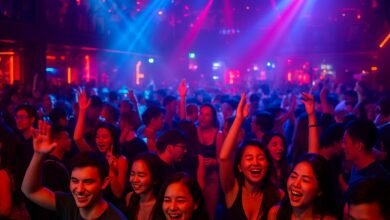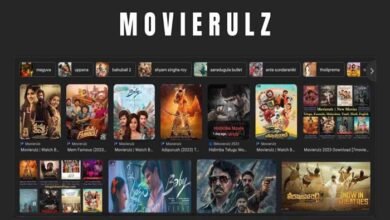Music festivals have evolved from small gatherings of like-minded individuals to massive cultural events that influence global trends, economies, and social behavior. From the iconic Woodstock of the 1960s to today’s mega-events like Coachella, Tomorrowland, and Glastonbury, these festivals are more than just platforms for live music. They have become cultural melting pots, shaping art, technology, fashion, and human interaction on a global scale.
The Evolution of Music Festivals
Music festivals have come a long way since their humble beginnings. Early festivals like Woodstock (1969) and the Monterey Pop Festival (1967) served as counterculture movements, symbolizing peace, unity, and a rejection of societal norms.
- 1960s–1970s: Music festivals were deeply tied to cultural revolutions, promoting messages of freedom, anti-war sentiments, and unity.
- 1980s–1990s: Festivals expanded globally, integrating diverse genres like rock, electronic, and hip-hop. Events such as Glastonbury in the UK became annual traditions.
- 2000s–Present: Technology transformed festivals into multimedia spectacles. Social media, livestreaming, and influencer culture elevated events like Coachella, Tomorrowland, and Lollapalooza to global prominence.
This evolution has shifted music festivals from niche gatherings to powerful platforms that influence how people express themselves, interact, and share cultural experiences. You get more interesting blogs at sajfm.com about music festivals.
How Music Festivals Promote Cultural Exchange
Music festivals bring together individuals from all over the world, allowing for the exchange of ideas, traditions, and experiences.
1. A Global Melting Pot
Festivals like Tomorrowland in Belgium and Glastonbury in the UK draw attendees from every corner of the world. This international audience creates a diverse atmosphere where cultures mix seamlessly. Attendees share their music, fashion, and traditions, creating connections that transcend borders.
- Example: At Tomorrowland, music lovers from over 200 countries unite, showcasing flags, native costumes, and cultural pride during performances.
2. Cross-Cultural Collaboration in Music
Music festivals encourage collaboration between artists from different genres, countries, and backgrounds. These collaborations introduce audiences to sounds and styles they may not have encountered before.
- Case Study: Events like Coachella have seen global artists like BLACKPINK and Bad Bunny gain massive exposure, introducing K-pop and Latin music to international audiences.
Through such collaborations, music festivals break cultural barriers and create new, shared global experiences.
Economic and Social Impact of Music Festivals
Music festivals are not only cultural hubs but also massive economic engines that contribute to local and global economies.
1. Boosting Local Economies
Festivals generate significant revenue for host cities through tourism, hospitality, and infrastructure development. Hotels, restaurants, and local businesses experience substantial growth during festival seasons. However, you can also explore the Sajfm site to learn more about the social impact of music festivals.
- Example: Coachella generates over $100 million annually for California’s local economy. Similarly, Glastonbury pumps millions into the British economy.
2. Employment Opportunities
From stage crews and food vendors to artists and security personnel, festivals create thousands of jobs. They provide a platform for small businesses and independent artists to showcase their work.
3. Promoting Community Engagement
Music festivals often encourage community involvement through workshops, volunteer opportunities, and environmental initiatives. They promote values like sustainability and local empowerment.
- Example: Festivals like Burning Man emphasize principles of community, self-expression, and environmental responsibility, leaving a positive legacy for attendees and residents alike.
Music Festivals as a Platform for Art and Fashion
1. Artistic Expression
Music festivals are more than just music – they are multisensory experiences. From large-scale art installations at Burning Man to immersive visual shows at Tomorrowland, festivals incorporate art as a key element of their identity.
- Example: Burning Man transforms Nevada’s desert into an open-air gallery where artists showcase sculptures, light installations, and interactive exhibits.
2. Influencing Fashion Trends
Festivals have become a global runway for fashion trends. Attendees express themselves through bold, experimental styles that often influence mainstream fashion.
- Case Study: Coachella has popularized “boho-chic” and retro-inspired outfits, with global brands drawing inspiration from festival aesthetics.
Fashion at music festivals is about individuality, freedom, and pushing boundaries, setting trends that ripple through pop culture.
The Role of Technology in Transforming Music Festivals
Technology has reshaped how festivals operate, amplifying their global impact.
1. Livestreaming and Global Access
Platforms like YouTube and Twitch allow audiences worldwide to experience festivals remotely. Livestreaming has made festivals accessible to millions who cannot attend in person.
- Example: Coachella’s live broadcasts attract millions of viewers globally, transforming it into a virtual festival as well.
2. Social Media and Digital Trends
Social media platforms like Instagram and TikTok have turned music festivals into cultural moments. Festival-goers share photos, videos, and viral trends, expanding the festival’s reach.
- Impact: Viral moments, like artists’ surprise performances or fashion highlights, turn festivals into worldwide trends overnight.
3. Virtual and Hybrid Festivals
Advancements in virtual reality (VR) and augmented reality (AR) have allowed festivals to create hybrid events that combine physical and digital experiences. This technology became especially important during the COVID-19 pandemic, keeping festivals alive.
Fostering Social Awareness and Activism
Many festivals now incorporate themes of social responsibility, activism, and sustainability into their ethos.
1. Sustainability Efforts
Festivals like Glastonbury and Bonnaroo focus on reducing their carbon footprint by promoting eco-friendly initiatives like waste recycling, plastic bans, and renewable energy.
- Example: Glastonbury’s “Love the Farm, Leave No Trace” campaign encourages attendees to respect the festival grounds and minimize waste.
2. Raising Awareness Through Music
Artists use their platforms at festivals to amplify messages about climate change, equality, and social justice. Festivals become spaces where cultural and political conversations thrive.
- Example: Global Citizen Festival ties music performances to activism, urging attendees to take action on poverty, education, and environmental issues.
The Future of Music Festivals
As the world becomes increasingly interconnected, music festivals will continue to evolve and influence global culture.
- Sustainability and Green Innovations: More festivals will adopt eco-friendly practices to minimize their environmental impact.
- Inclusivity: Festivals will focus on diverse lineups and accessible experiences to appeal to a global audience.
- Immersive Experiences: With the rise of VR, AR, and AI, festivals will offer hybrid events that combine real-world performances with virtual innovation.
Festivals will remain a reflection of society’s changing values, serving as platforms for cultural exchange, artistic innovation, and social progress.
Conclusion
Music festivals are no longer just about live performances; they are transformative cultural phenomena that influence global trends in fashion, technology, economy, and social behavior. By fostering connections among people from diverse backgrounds, promoting artistic expression, and driving conversations about sustainability and activism, festivals serve as powerful tools of global unity.





